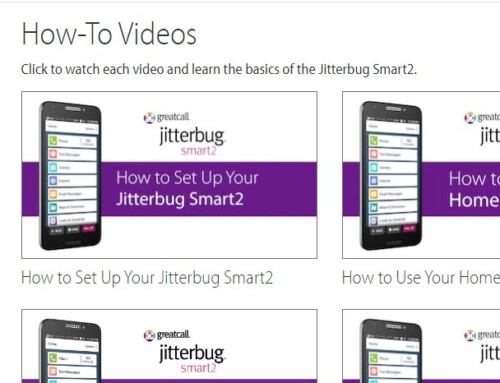Edge Studio sent out a great email the other day with 10 important business practices. I haev to admit, I KNOW about all 10 of these things, but find that one or more get bumped down the To Do list depending on work and play load. This is the complete email I received.
You might consider getting on their email list – you will be notified of their free tele-seminars and get other good free information such as this. Was looking for a link where you could sign up for the email, but couldn’t easily find it – so here is the web address: http://www.edgestudio.com/careerbuilding.htm
1. DON’T BECOME COMPLACENT.
PROBLEM:
It’s very easy to become complacent once you have clients coming in. You forget what it took to get there. You’re up to speed, even accelerating, so you stop working your gears. BUT EVENTUALLY you start losing ground to competitors.
There’s an old saying among our ad agency clients: Just because the train is rolling, don’t disconnect the engine.
EXAMPLE:
Suppose you narrate an educational video for a particular client every week. But then suddenly they stop calling you. What happened? The client went with one of your competitors, because they offered to deliver the recording to the client using the latest technology. Unfortunately, you never mentioned to your clients that you provide this technology, so they assumed you couldn’t.
SOLUTION:
Test the waters. Feel the air. Know where you are. Learn where your competitors are. And stay in the lead.
Consider a big, profitable hamburger chain — even with millions of customers coming in every day, they’re still testing new products, trying to make things better, working to improve pricing, methods, variety, quality, presentation, decor, service, signage, advertising, even make their logo better.
As a small business owner, you should do the same.
Work the gears continually. Once you get set in your ways, a new generation of voice talent will be grabbing at your clients.
2. DON’T MAKE SNAP DECISIONS.
PROBLEM:
As a small business owner, it is too easy to change course in a minute.
EXAMPLE:
Suppose you suddenly think of a new slogan, “Words That Speak Out!” Overnight, you begin a major promotion, you add the slogan to your emails. You put it on your website. Great. You turned on a dime. BUT YOU DID all of this without testing.
You didn’t think your new slogan through. It turns out, now people are mistaking you for a copywriter, a poet, calligrapher, sign maker, ad agency, or marketing company. Worse, now you have to correct those mistaken impressions.
SOLUTION:
The big folks find it worthwhile to spend millions of dollars for testing. Shouldn’t you spend at least a few days of thought and asking around?
Big companies assess everything they do. And by the time they run focus groups, market tests, statistical analyses, etc., even a small change can take 6 months to implement. The stakes are too high for them to risk everything on an untested whim.
But you can do this in a day or two!
Where your income and image are concerned, how high are the stakes to you?
Think it through.
3. SEND OUT A SURVEY. CORRECTLY.
PROBLEM:
You never find out why some customers keep hiring you, and why some stop!
Over the years, Edge Studio has cast more than 16,000 voice jobs, and of those, the number of people who have asked me how they did, I can count on my hands.
EXAMPLE:
Take, for example, the plumber I recently hired. At the end of the job, he asked “How’d I do?” and gave me reason to think he would use that information to improve his performance and grow his business. That guy definitely gained my respect.
SOLUTION:
Run a survey, but do it correctly: The right way is to determine what kind of information you want, then design the survey to generate that kind of data.
For example, don’t ask “Did you like my service?” Rather than embarrass themselves by telling you truly, people will just ignore the survey or give a useless polite answer — and then won’t hire you again. Instead, ask a specific question such as, “What is the one thing I could do differently that you would appreciate?”
4. ASK FOR TESTIMONIALS.
A set of testimonials goes a very, very long way: It builds your prospects’ confidence. Testimonials say things that may be awkward to say about yourself. And when your prospective client is still in the tire-kicking stage, testimonials speak on your behalf without costing anyone extra time.
Use testimonials on your website, in your mailings, wherever space affords. And even if you don’t have a website or some other way to use testimonials now, eventually you will. Then you’ll be glad you thought ahead.
5. ASK FOR A REFERENCE.
As powerful as a testimonial is, a reference is even stronger. Just reserve them for prospects who are otherwise “ready to buy,” so the people giving you references won’t be overburdened. Whenever possible, forewarn your reference as to who will be contacting them and why, including any particular area of concern.
6. ASK A CLIENT FOR A REFERRAL.
It’s the easiest and fastest way to get the most work with virtually no marketing effort. Do it at the time of invoicing, assuming the job went well.
7. BE PROFESSIONAL.
Be courteous, be prompt, send a thank-you after your session, dress appropriately, do everything that signals you’re a pro.
8. SPEAK ABOUT YOURSELF CORRECTLY.
When asked what you do, don’t say, “I’m a voice-over artist,” because most people don’t know what that means, and the few that do will probably think it means commercials. Instead say, “I help businesses sound better, by providing them with wonderful sound tracks for their voice mail and training videos so they sound more professional.” Tailor this “elevator pitch” precisely to your special strengths.
9. CONSIDER YOUR PROSPECT’S VIEW.
Always keep in mind what a potential client has to go through prior to hiring you. They have to research you and your competitors. They need reason to trust you. And they need to see value in the services you provide. They’ll probably want to speak with others who have used you.
To you, the prospect may seem overly cautious, but they have good reason for doing so. And if they haven’t done enough homework, covering these bases with them may produce a stronger relationship in the end.
10. WRITE A BUSINESS PLAN.
Like most small businesses, the vast majority of voice over talent overlook this. They focus only on their voice, and forget to focus also on their business.
Make it official. The couple hours it takes to write a simple business plan will make a big difference in obtaining the kind of work you want, the money you want, even the lifestyle you want. For example, do you prefer to work form home, or to work from audition houses? Designing your business helps design your life.
Revisit your business plan every 3 months, read it and revise as necessary, even if things are going great.








Leave A Comment